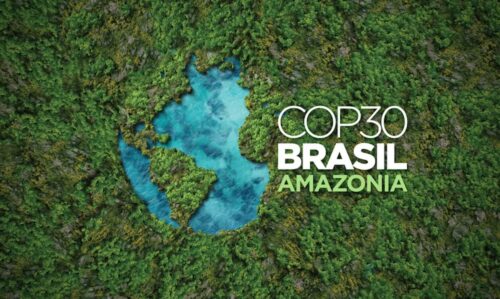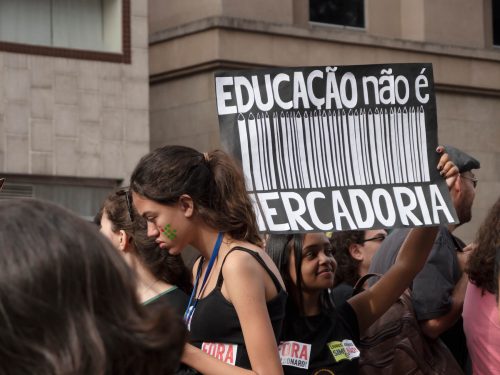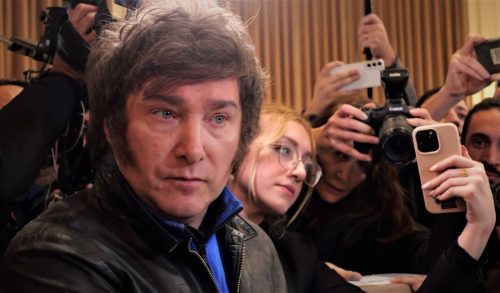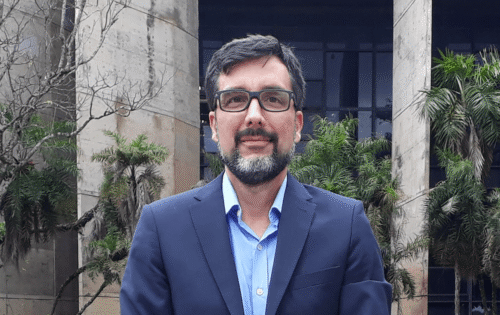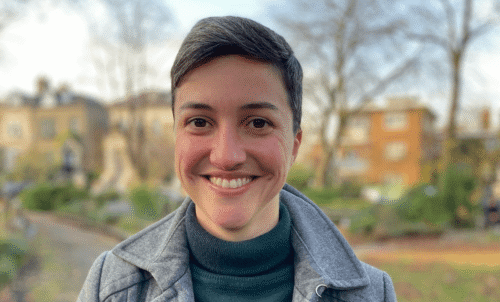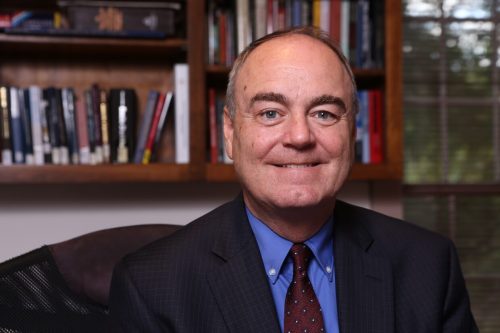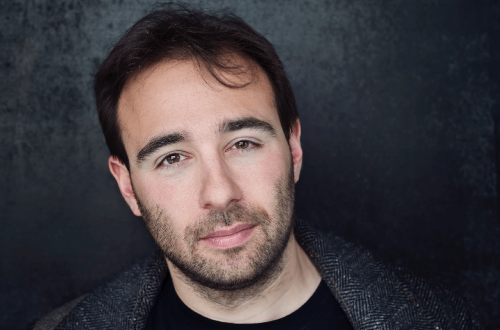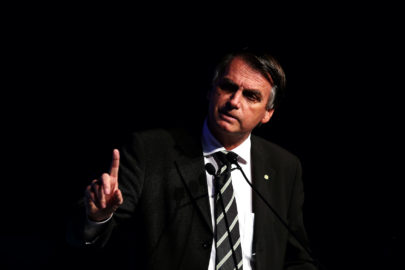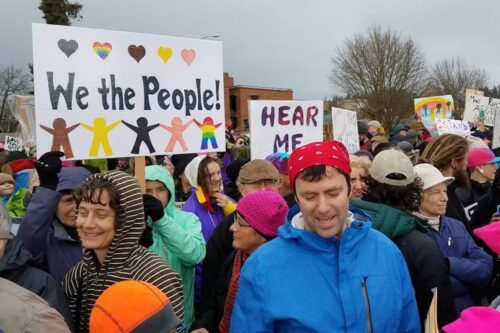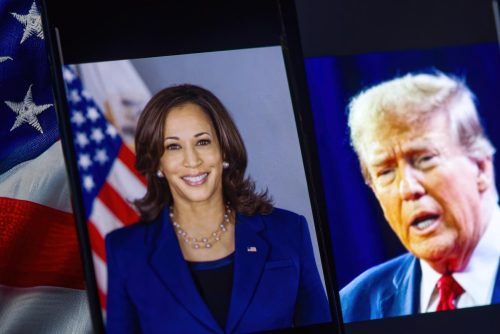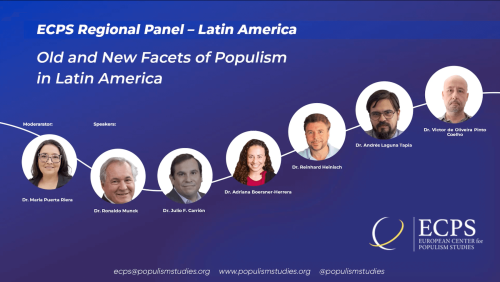Brazil
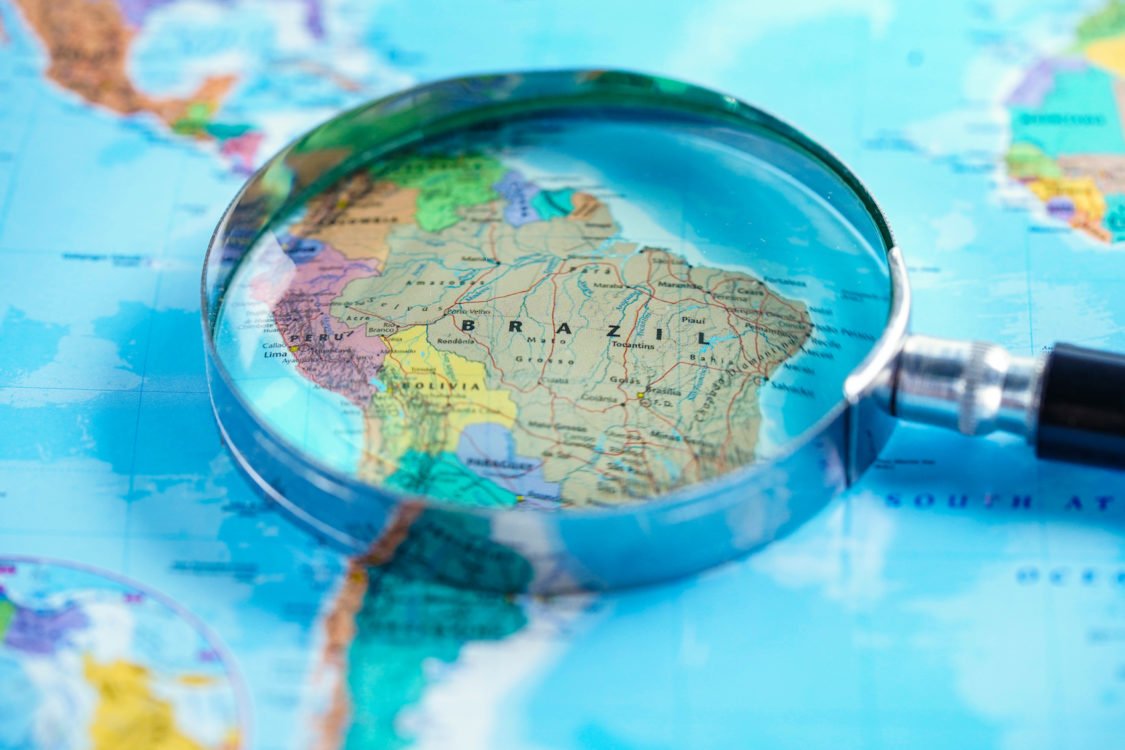
Dubbed the “Trump of the Tropics,” Brazilian President Jair Bolsonaro often makes the headlines with statements that are homophobic, racist, and sexist. His political rhetoric is dominated by populist pledges to tackle corruption at the highest government levels and to improve the social welfare of “ordinary” people. But in reality, he is focused on opening up many of the country’s ecologically sensitive areas to commercial exploitation. His authoritarian style and exclusionary rhetoric towards minorities are making Brazil less and less safe for Indigenous peoples and the already-marginalized Black and LGBTQ+ communities.
Located in the northeastern portion of South America, Brazil, officially the Federative Republic of Brazil, is the largest economy in South America and the sixth-most populous country in the world. Brazil’s political landscape has been defined by unsustainable economic policies and social and economic inequality; these factors have led to dominance by left-wing populist parties and leaders. Nearly all of the country’s pre-Bolsonaro populist governments have been associated with left-wing charismatic leaders who attempted to implement “heterodox” economic policies (Barros, Silva, 2020).
Brazilian populism dates to the Revolution of 1930, which ended the rule of the Republican aristocrats from the states of Minas Gerais and Siio Paul. These elites were the dominant powers since the overthrow of the emperor in 1889. The 1930 revolution ousted President Washington Luís and transferred the presidential powers to “the Father of the Poor,” Getúlio Dornelles Vargas. Vargas then led the country for 15 years, becoming the longest-serving of any president in Brazilian history. Throughout his first stint as president from 1930 to 1945, Vargas set out to implement a social welfare program while employing statist/interventionist economic policies that included tax breaks and that imposed import quotas to stimulate industrial growth. In 1937, Vargas declared a state of emergency based on the threat of communism and dissolved the country’s parliament.
Under a new constitution, a dictatorial period, known as the Estado Novo (New State) officially commenced in November 1937. Under the new constitution, many of the mines, energy sources, and banks were nationalized, while the country’s foreign debts were suspended indefinitely (Castro, Ronci, 1991). Sweeping social policies regarding nutrition, education, and housing became key elements of the Estado Nova (Crocitti, 2006). Vargas also terminated the old economic system, which was dominated by rural landholders. He instead strengthened central authority, capacitating it to organize and control labor (Poppino). A superior-subordinate relationship was created between the state and organized labor. Organized labor was allowed to unionize as long as workers did not engage in political activity, nor in strikes (Bethell, 2018). In return, the Vargas regime ensured the loyalty of the working class through systematic wage increases, social welfare benefits, and populist rhetoric.
The Estado Novo came to an end with a coup d’état in October 1945. Eurico Gaspar Dutra was elected president in general elections held in December 1945, becoming the first president of what was known as the Second Brazilian Republic. Five years later, Vargas was re-elected as the president in 1951, through a free and secret ballot. After another three years in power, however, he committed suicide due to a deepening political crisis. Excerpts from his suicide letter – written before he put a bullet in his heart – sum up his populist approach to politics: “The excess-profits law was held up by Congress… National freedom… They do not want the worker to be free… Profits of foreign companies were reaching as much as 500 percent per annum… We tried to defend its price and the reply was such violent pressure… I fought against the spoiling of Brazil… Now I offer my death” (Castro, Ronci).
A period of turbulence followed, leading to a period of military rule from 1964 to 1985. Following the dissolution of the military regime, Fernando Collor de Mello was elected president in the 1989 presidential elections, marking the return of populist politics to the country. His election campaign was heavily dominated by anti-establishment speeches that accused the ruling elites of engaging in corruption. He made repeated pledges to tackle the rotten aspects of the Brazilian political order, to battle corruption at the highest governmental levels, and to improve the social welfare of ordinary people. Perhaps unsurprisingly, Collor’s voter base in the presidential election was thus mainly composed of low-income, poorly educated voters (Bethell). After a turbulent two years in power, which were characterized by economic and political crises, Collar was (ironically) impeached by the Chamber of Deputies for corruption, on September 29, 1992.
The 2000s saw the rise of Luiz Inácio “Lula” da Silva, who had campaigned unsuccessfully for the presidency three times during the previous decades. When he was finally elected in 2002, he became a symbol of change for the lower and middle classes. This was partly because he was the first president elected from a party that was not founded by the established elites. He was indeed the founding member of his own Workers’ Party (PT). His presidential campaign was unsurprisingly dominated by pledges for the poor, clear defiance to the ruling elites. In line with expectations, after assuming the power, he immediately set out to implement several social programs, including Bolsa Família, financial aid to low-income families with children who attended school and were vaccinated, and Fome Zero, a program to eradicate hunger and extreme poverty throughout the country. Many scholars therefore understandably don’t evaluate Lula’s populist side negatively, but rather as his way of doing some good for the poor (Coutinho, 2017). Many others also choose to define him as popular, not populist (Couto 2018). He was admittedly far from being a traditional populist, as he was not disconnected from the realities of society. The first period of his presidency was characterized by the elevation of at least twenty million people from poverty, while Brazil became the world’s eighth-largest economy (Forero, 2010).
The country’s first working-class president was arrested on accusations of corruption and bribery in 2016. He was officially convicted in 2017 and then jailed in April 2018. He was released from prison in November 2019.
The latest of Brazil’s seemingly endless array of populist leaders have taken on a different tint. Jair Bolsonaro, a far-right candidate, won the October 2018 presidential election with 55% of the vote. Before his presidency, he had a long past in Brazilian politics. He had served as a federal deputy for the lower chamber of Congress from 1991 to 2018. During this time, he often came to public attention for statements that were widely considered homophobic, racist, and sexist. Indeed, Bolsonaro’s obsession with the opposite sex reached a breaking point when he once told Congress member Maria do Rosário that he would not even rape her because she did not deserve it (Kaiser, 2018). Similarly, he said in a TV interview in 2016 that he would not employ a woman because “women get pregnant” (Uchoa 2018). He even insulted his own daughter in a public speech in 2017: “I have five children. I had four boys, and in the fifth, I weakened, and a girl came,” he said (Uchoa).
Although he somewhat moderated his tone in the run-up to the 2018 presidential elections, Bolsonaro’s campaign was still heavily dominated by populist pledges to tackle the rotten aspects of the country’s political order, to battle corruption at the highest governmental levels, and to improve the social welfare of ordinary people. Blended with nationalism and anti-elitist statements, he has honed the traditional “us vs. them” rhetoric used against the establishment elites. Bolsonaro, like many other populists, accused the country’s political elites of corruption, blaming them for Brazil’s economic and political crises. Naturally, he campaigned as the only leader who can defend the interests of ordinary people. What makes Bolsonaro different from Latin America’s classic populists is his exclusionary style of populism. As mentioned above, “the ordinary people” for Brazil’s old populists was a large group of people that included workers, peasants, and many different minority groups. Bolsonaro, however, defends the superiority of the popular majority. His definition of “the people” is not inclusionary. He denies the inviolability of minority rights and ignores race, class, and gender conflicts in Brazil (Chueri, 2018).
Often dubbed the “Trump of the Tropics,” Bolsonaro denies the reality of climate change. After coming to power, he dissolved the governmental divisions tasked with fighting climate change, including the Climate Change Division, which once spearheaded Brazil’s efforts within the UN (Escobar, 2019). In August 2018, Bolsonaro also dismissed the head of Brazil’s National Institute for Space Research (INPE). The dismissal came after INPE released a report to indicate that deforestation had increased 40 percent during a two-month period compared to the same period a year before (Farand, 2019). Bolsonaro said the agency was exaggerating the ongoing destruction and discrediting Brazil in the international arena. “We cannot accept sensationalism or the disclosure of inaccurate numbers that cause great damage to Brazil’s image,” he said (Farand). The president believes that deforestation is mandatory, as it is an efficient path to widespread majority prosperity (Soares, 2020).
Relatedly, Bolsonaro is highly critical of the country’s Indigenous communities, of which there are an estimated 900,000 people. As president, in 2019, he initiated cuts to government funding for Indigenous services. In February 2020, he presented a draft bill to Congress to regulate hydroelectric power projects and mining in Indigenous territories. “The Indians do not speak our language, they do not have money, they do not have a culture. They are native peoples. How did they manage to get 13 percent of the national territory?” he wondered (Survival Int.).
In terms of civil and political liberties, Brazil is considered a free country (Freedom House, 2020). Political liberties are often respected, and Brazilian voters enjoy regular and competitive multiparty elections. The country also scores highly when it comes to personal freedoms, especially for certain disadvantaged groups, including the LGBTQ+ community. Same-sex sexual activity is not illegal while same-sex marriage has been legal since May 2013. Brazil, however, is not exactly a paradise for journalists and civil society activists, who often face the risk of violent attacks (Freedom House). Additionally, violence and human rights abuses by both state and non-state actors are among the major problems. Corruption prevails even at the highest levels of government.
Since entering the office in January 2019, Bolsonaro has implemented many of his controversial promises. He has loosened many of the settled environmental regulations. The year 2019 was characterized by a record number of controversial fire outbreaks in the Amazon. Many of the country’s ecologically sensitive areas have been opened up to commercial exploitation. Additionally, his authoritarian style and exclusionary rhetoric towards minorities are making Brazil less and less safe for Indigenous peoples and for the already-marginalized Black and LGBTQ+ communities. Bolsonaro is attempting to strengthen his powers through a series of alliances with groups within the state bodies. Among these groups are prominent members of the judiciary as well as the military, police forces, the evangelical religious right, and agribusiness (Pahnke, Milan, 2020). On the other side of the coin, however, there are credible reports that suggest Bolsonaro is losing political support mostly due to his notorious failure to control the spread of the coronavirus pandemic in the country. As of mid-2020, at least thirty requests were submitted to the country’s congress for his impeachment (Taylor, 2020). However, it is too early to tell whether Bolsonaro’s often unpredictable regime will go down in history as a brief electoral accident or manage to establish a centralized, authoritarian political force for years to come. Time and opportunities may pave the way for him to achieve more political prominence in the future, or vice-versa.
August 7, 2020.
References
— (2015). “What Brazil’s President, Jair Bolsonaro, has said about Brazil’s Indigenous Peoples,” Survival International.https://www.survivalinternational.org/articles/3540-Bolsonaro (accessed on August 4, 2020).
— (2020). Freedom House. “Freedom in the World 2020 Narrative Report for Brazil,” https://freedomhouse.org/country/brazil/freedom-world/2020 (accessed on August 4, 2020).
Barros, Laura, Manuel Santos (2020). “Silva Right-wing populism in the tropics: The rise of Jair Bolsonaro,” Voxeu, January 24, 2020. https://voxeu.org/article/right-wing-populism-tropics-rise-jair-bolsonaro (accessed on August 4, 2020).
Bethell, Leslie, “Populism in Brazil,” in Brazil: Essays on History and Politics (London: Institute of Latin American Studies, 2018).
Bruno, Coutinho, Adriana Carvalho Lopes, Daniel do Nascimento e Silva (2017). “Populism and the people in Lula’s political discourse: Bridging linguistic and social theory,” Revista de Estudos da Linguagem 25/2 (2017).
Chueri, Juliana (2018). “People against the elite? Jair Bolsonaro’s presidential campaign,” Conference Paper: 42º Encontro Anual da Anpocs, September 2018. https://www.researchgate.net/publication/327843839_People_against_the_elite_Jair_Bolsonaro’s_presidential_campaign (accessed on August 4, 2020).
Couto, Claudio, “Lula and Jair Bolsonaro: the popular and the populist,” The Brazilian Report, August 31, 2018. https://brazilian.report/opinion/2018/08/31/lula-bolsonaro-popular-populist/ (accessed on August 4, 2020).
Crocitti, John J. (2006). “Vargas Era Social Policies: An Inquiry into Brazilian Malnutrition during the Estado Novo (1937–45),” in Vargas and Brazil New Perspectives ed. Jens R. Hentschke (Palgrave Macmillan, 2006).
De Castro, Paulo Rabello and Marcio Ronci (1991). “Sixty Years of Populism in Brazil” in The Macroeconomics of Populism in Latin America eds. Rudiger Dornbusch and Sebastian Edwards (University of Chicago Press: January 1991).
Escobar, Herton (2019). “Brazil’s new president has scientists worried. Here’s why,” January 22, 2019, https://www.sciencemag.org/news/2019/01/brazil-s-new-president-has-scientists-worried-here-s-why (accessed on August 4, 2020).
Farand, Chloé (2018). “Bolsonaro under fire for deforestation denial, after sacking space agency chief,” Climate Home News, August 05, 2019. https://www.climatechangenews.com/2019/08/05/bolsonaro-fire-deforestation-denial-sacking-space-agency-chief/ (accessed on August 4, 2020).
Forero, Juan (2010). “Brazilian president’s handpicked successor leads, faces runoff,” The Washington Post, October 4, 2010. https://www.washingtonpost.com/wp-dyn/content/article/2010/10/03/AR2010100304612_pf.html (accessed on August 4, 2020).
Kaiser, Anna Jean (2018). “Woman who Bolsonaro insulted: Our president-elect encourages rape,” The Guardian, December 23, 2018. https://www.theguardian.com/world/2018/dec/23/maria-do-rosario-jair-bolsonaro-brazil-rape(accessed on August 4, 2020).
Pahnke, Anthony Robert and Marcelo Milan (2020). “The Brazilian Crisis and the New Authoritarianism,” Monthly Review, June 1, 2020. https://monthlyreview.org/2020/06/01/the-brazilian-crisis-and-the-new-authoritarianism/ (accessed on August 4, 2020).
Poppino, Rollie E. (2020). “Getúlio Vargas president of Brazil,” Encyclopedia Britannica. https://www.britannica.com/biography/Getulio-Vargas (accessed on August 4, 2020).
Soares, Jorge (2020). “Lying about Brazil’s forests,” D+C Development and Cooperation, June 30, 2020. https://www.dandc.eu/en/article/brazils-president-jair-bolsonaro-falsely-says-deforestation-not-problem (accessed on August 4, 2020).
Taylor, Joel (2020). “Brazil’s leader Jair Bolsonaro ‘loses support’ amid coronavirus death toll backlash,” METRO, June 9, 2020. https://www.metro.news/brazils-leader-jair-bolsonaro-loses-support-amid-coronavirus-death-toll-backlash/2040038/ (accessed on August 4, 2020).
Uchoa, Pablo (2018). “Jair Bolsonaro: Why Brazilian women are saying #NotHim,” BBC News, September 21, 2018. https://www.bbc.com/news/world-latin-america-45579635 (accessed on August 4, 2020).





